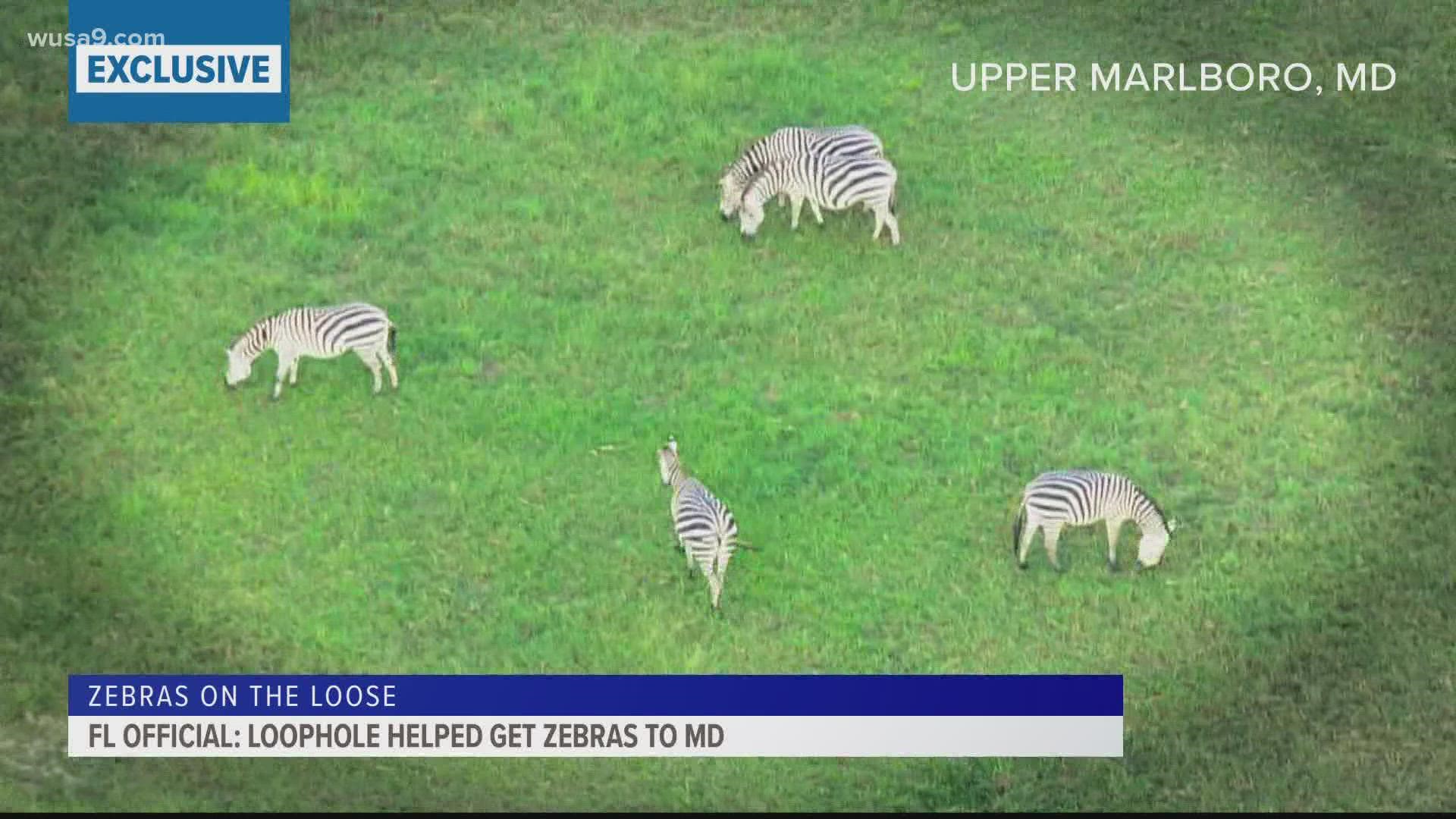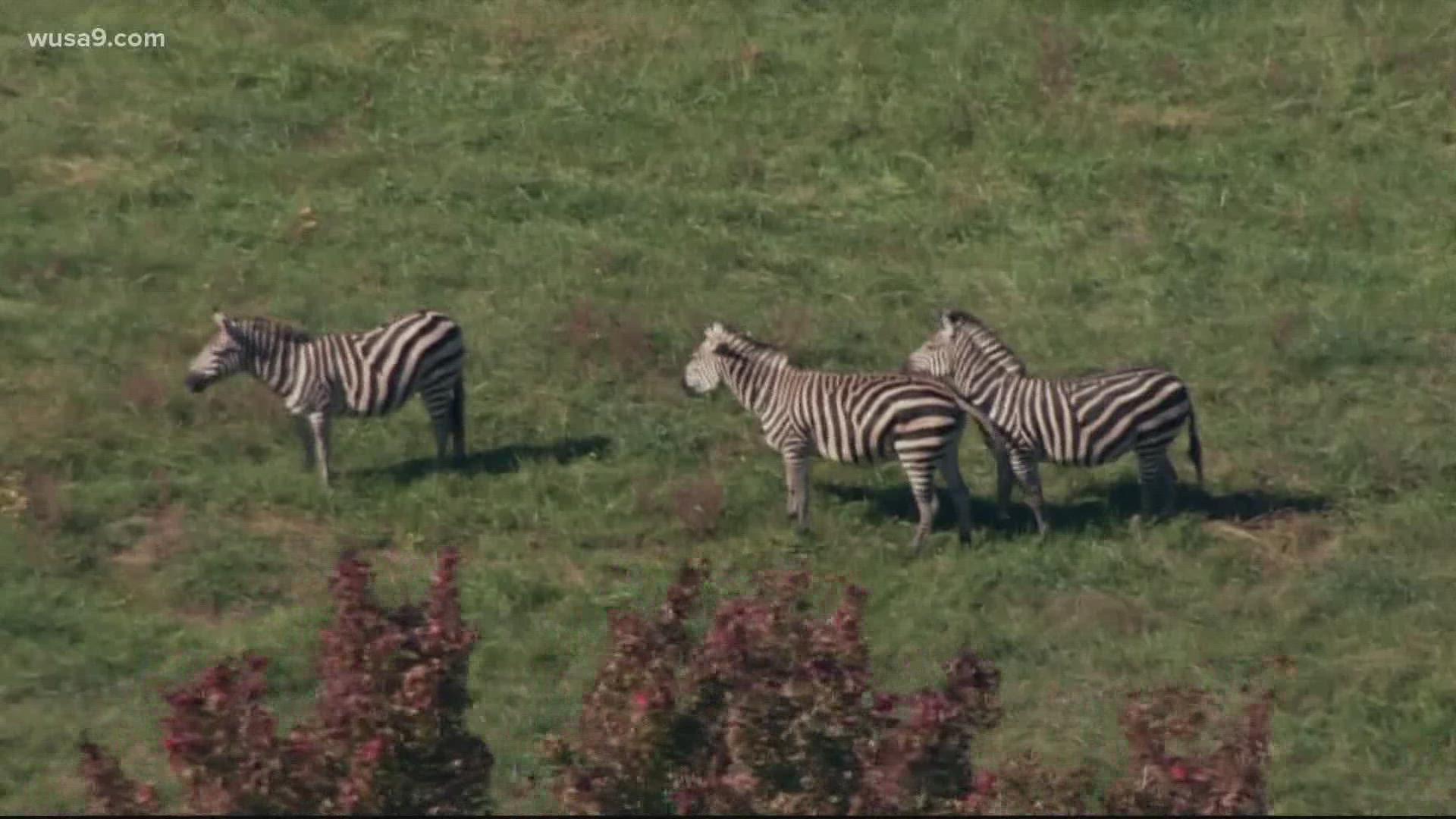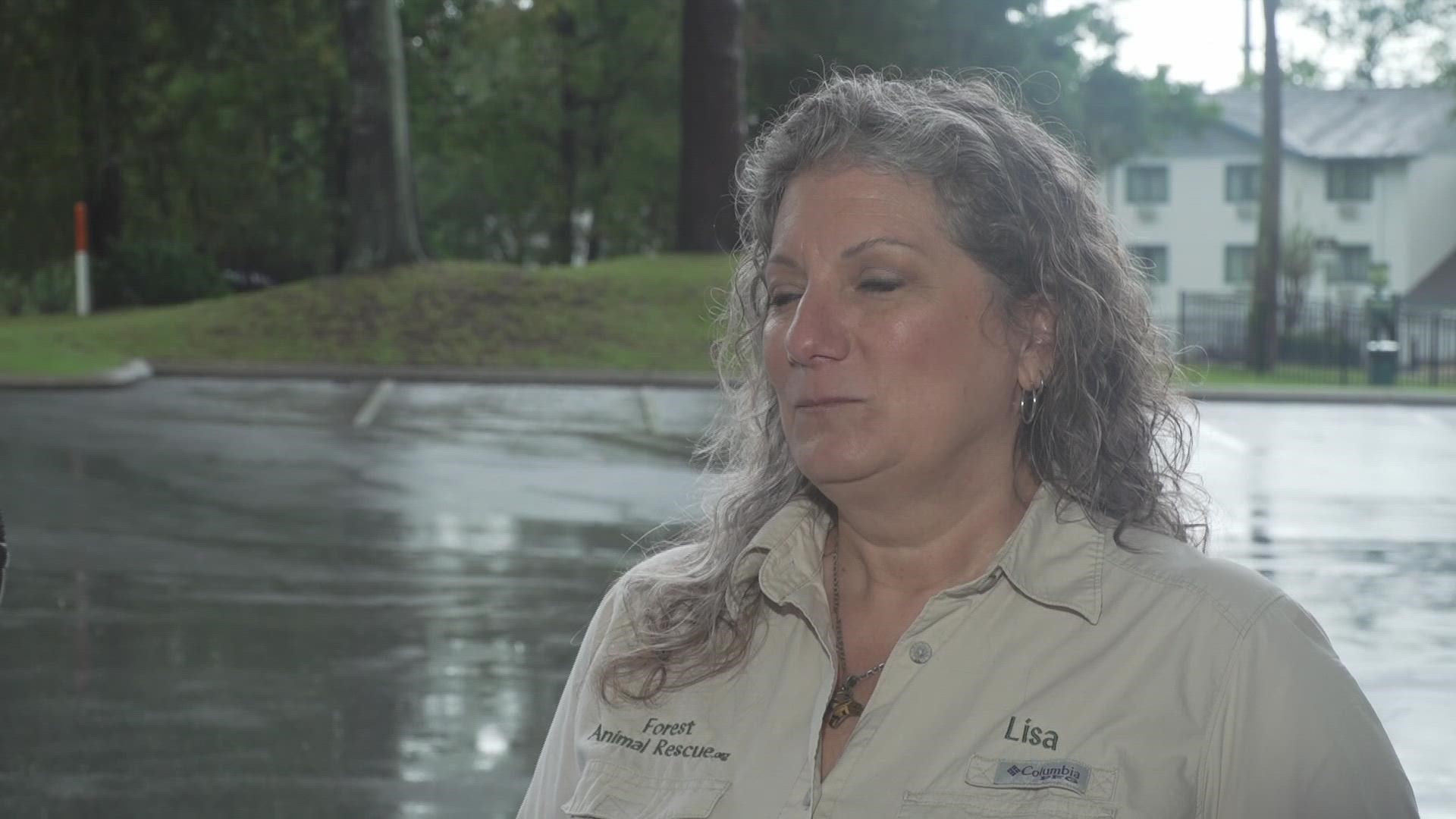GAINESVILLE, Fla. — Florida wildlife conservation authorities say the case of a man who moved a herd of zebras to Maryland exposes serious shortcomings in laws meant to protect exploited animals and the public.
Florida is now poised to tighten up regulations that allowed zebra owner Jerry Lee Holly to continue to keep and sell exotic wildlife from his 810-acre Florida ranch, despite criminal convictions, losing his Florida license and racking up at least 240 state and federal violations since 2004, according to a WUSA9 review of Florida and US Department of Agriculture records.
Despite his record, Holly obtained a new USDA license enabling him to move a herd of at least 40 zebras from Florida to Maryland in late summer of this year.
Two of the zebras have since died. Holly has been accused of abuse and neglect by Prince George’s County Maryland authorities. At least two other zebras that have escaped are still on the run in Maryland.
“I think I think what your investigation has exposed is that we have a loophole,” Florida Fish and Wildlife Conservation Commission Chairman Rodney Barreto told WUSA9.
Barreto explained that Holly and other exotic wildlife operators merely find employees, friends or family with their own wildlife licenses, who then continue to run lucrative businesses at violators’ facilities. The businesses include breeding exotic wildlife, selling to collectors and zoos, or leasing out animals for profit to exhibitors.
“The loophole is that when someone, a bad actor, leaves -- let's say in our case Florida -- and ended up in -- let's say in this story Maryland -- you know there's there's no communication going on between states,” Barreto said.
Barreto is now advocating for new regulations that would stop the licensees who don’t own the animals or the properties they are kept on from continuing to operate the facilities. The would make it much harder for violators to keep control of their animals, Barreto believes.
He is also calling for Florida to host a national database of violators to make it easier for authorities across the country to stop animal abusers from moving their operations from state to state.
“We didn't know where he was going,” Barreto told WUSA9 as he reflected on the Holly case.“He could have popped up in Virginia, he could have popped up in North Carolina. But there's got to be some database that we can put bad actors’ names on so that when they apply for some kind of wildlife permit that there's a red flag that goes up.”
Through a spokesman, the US Department of Agriculture refused to comment on why the agency granted Holly a new license to keep animals in Maryland, despite his extensive record of violations in Florida.
In the Holly case, Florida records show that he was convicted of animal caging violations in the state twice between 2012 and 2013.
The hundreds of violations recorded since 2004 included a lack of veterinary care, lack of trained employees, dangerous cages and a lack of records to account for where some of the animals were being sold and to whom.
Federal documents from the U.S. Department of Agriculture included photos of injured monkeys, filthy conditions that threatened to spread infections and disease, and cages with sharp metal protrusions. Deaths were reported, including one animal that may have succumbed to the cold because it did not have adequate shelter during a rare Florida cold snap.
Many of the violations focused on the keeping of monkeys and other primates, but the documents also include reports of failing and potentially dangerous fencing that enclosed zebras and other animals such as giraffes, camels and buffalo.
The USDA assessed a $12,300 fine against Holly, but he kept his license issued by that agency. Holly’s state license in Florida, however, was revoked in 2016.
“Receiving written warnings and criminal convictions for your wildlife violations has not sufficiently deterred you,” the Florida Fish and Wildlife Conservation Commission stated in its 2016 revocation letter to Holly. "Your incomplete records do not reflect where you are getting your animals from and who you are selling your animals to. You maintain your animals in substandard caging demonstrating an apparent indifference to their welfare. You conduct commercial activity with wildlife you are not permitted to possess or sell.”
Florida denied Holly’s application to restore his license in 2018.
Yet since then, Florida inspection reports show that animals continued to be kept and sold from Holly’s ranch until at least May of 2021; a May 28 inspection inventoried at least 90 exotic animals, including a herd of 50 zebras on the property nearly five years after his state license was revoked.
A man who identified himself as a current employee at the farm said the zebras were moved from the farm in Florida about two months ago and that there is little or no exotic wildlife still on the property.
A local animal welfare advocate who operates near Holly’s farm complained that lax regulation virtually guarantees animals will continue to be exploited and abused for years on end.
"They just keep giving people chances," Florida animal welfare advocate Diane Marchand said. "And I don't know if ... they don't want to take the animals. But it's like how long are you going to let these animals suffer while you're babysitting?"
Holly declined to comment when contacted at his Maryland farm. Family members and other associates contacted by WUSA9 also did not respond.



